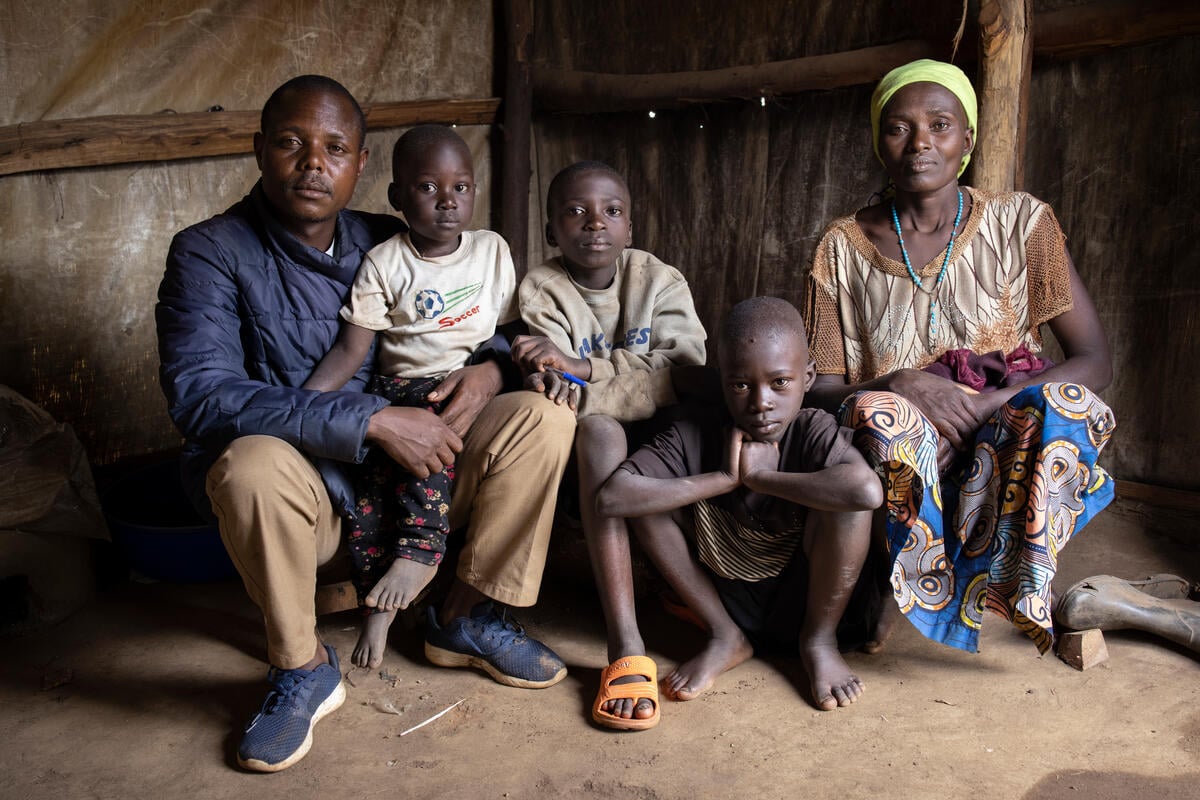Ebb and flow of forced displacement in Iraq
Ebb and flow of forced displacement in Iraq

ERBIL, Iraq, June 30 (UNHCR) - Over the weekend, classrooms at the Hekma primary and secondary school in the northern Iraqi city of Erbil looked more like packed dormitories. Mattresses lined the walls and personal belongings were neatly arrayed beside them.
Some 700 displaced Iraqis had made Hekma their temporary home. UNHCR and other aid agencies provided emergency support, and the local community in Erbil, in Iraq's Kurdistan region, also stepped up to help.
During the pre-dawn hours of last Friday, UNHCR and dozens of volunteers worked in tandem to get 2,500 mattresses and quilts and 500 boxes of hygiene items like soap, toothpaste and toothbrushes to this latest wave of Iraqi internally displaced people (IDPs). They had fled the village of Qaraqosh outside Iraq's second largest city of Mosul late Wednesday. They said fighting had started nearby between Kurdish peshmerga forces and those allied with anti-government fighters.
A total 550 mattresses and quilts were sent to the Hekma school, while an estimated 4,000 other IDP's were sheltering in churches, other schools, with families, and in community centres. Children as young as 10 helped offload trucks, then carried the emergency goods into the school, where they were distributed to families.
Among them were Behnam, his wife Nadia, and their five children, who had fled their home in Qaraqosh the night before. "It's too hot here," complained Nadia as she wiped the brow of her two-year-old daughter Marianna. "Everybody is sharing bathrooms, and there are no showers."
It is now possible to sleep, however, with mattresses and quilts for all. Hot food in the form of chicken, rice and vegetables was supplied Friday morning by another aid agency. "We want to go back," said Behnam, "Even though electricity and water service is sporadic."
Others had doubts about returning, not only due to safety concerns, but because their future looked so discouraging. Police officer Bassam said he hadn't received his salary in more than a month. "No one expected this," he said. "With two boys and a girl, what do I do now?"
It's a question that an increasing number of IDPs are asking. Since January, their number has surpassed 1 million across Iraq. There was an initial outflow of a half million from central Iraq's Anbar governorate, and in the past two weeks, another half million from Ninewa and other nearby governorates in the north following fighting there.
For some, this was not the first time they had fled fighting. One mother said she was from Baghdad, but had moved to Qaraqosh after feeling unsafe in her home in the Iraqi capital. UNHCR protection staff say that, increasingly, Iraqis have fled multiple times.
"It's a phenomenon we are sadly seeing more of today, and we are working to learn more about how extensive it is," said UNHCR's Gemma Woods. "There are families that fled fighting in central Iraq almost a decade ago, who settled elsewhere, and are now finding they have to flee to safety yet again."
For now, things are looking better for the thousands who departed Qaraqosh last week. On Sunday morning, six buses pulled up in front of the Hekma school to take the IDPs home. Town leaders had told the IDPs that it was safe to return to Qaraqosh; that fighting had ended and their homes were intact. By Sunday afternoon almost all from the town had gone home.
Meanwhile, UNHCR was hearing reports of another major displacement, this one from Tikrit, midway between Mosul and Baghdad, where the Iraqi military and opposition groups have been fighting for two weeks.
By Ned Colt in Erbil, Iraq









